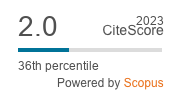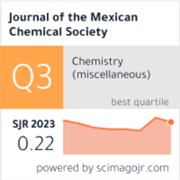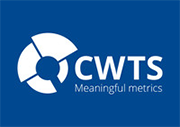Synthesis and Anticancer Activity of Gold(I)-Chloroquine Complexes
DOI:
https://doi.org/10.29356/jmcs.v57i3.210Keywords:
Chloroquine, gold, anticancer agents, DNA and thioredoxin reductaseAbstract
Two new gold(I) -chloroquine complexes, Au(CQ)(Cl) (1) and Au(CQ)(tgta) (2), were prepared and their most probable structure were established through a combination of different spectroscopic and analytical techniques. Their interaction with two important targets of action, DNA and thioredoxin reductase (TrxR), were nvestigated. These studies showed that complexes 1 and 2 displayed two types of interaction with DNA, covalent binding through the metal center, and additionally a non-covalent interaction that is electrostatic in the case of complex 1, but intercalative for complex 2, which is similar to that displayed by free CQ. The experimental data indicated that these gold-CQ complexes also possess the ability to inhibit TrxR. These results led us to test their cytotoxicity against 6 tumor cell lines. The complexes displayed cytotoxic activity against the PC-3, SKBR-3, HT-29, LoVo and B16/BL6 lines. These finding suggest that gold(I)-CQ compounds, particularly [Au(CQ)(PPh3)]PF6, are promising chemotherapeutic alternatives in the search of anticancer agents.Downloads
Downloads
Published
Issue
Section
License
Authors who publish with this journal agree to the following terms:
- Authors retain copyright and grant the journal right of first publication with the work simultaneously licensed under a Creative Commons Attribution License that allows others to share the work with an acknowledgement of the work's authorship and initial publication in this journal.
- Authors are able to enter into separate, additional contractual arrangements for the non-exclusive distribution of the journal's published version of the work (e.g., post it to an institutional repository or publish it in a book), with an acknowledgement of its initial publication in this journal.









